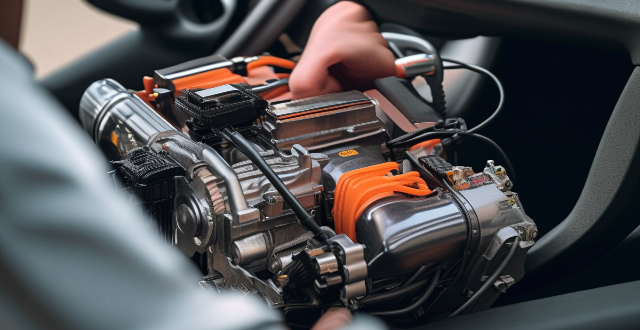Series HEVs offer improved fuel efficiency, reducedSeries HEVs offer improved fuel efficiency, reduced and cost savings compared to conventional reduced emissions, enhanced performance, and cost savings compared to conventional vehicles. They use an internal combustion engine and an electric motor to power the vehicle, resulting in lower fuel consumption and emissions. Regenerative braking further improves fuel efficiency by converting kinetic energy into electrical energy. Series HEVs also provide instant torque for better performance and require no traditional transmission, reducing maintenance costs. Additionally, they have lower operating costs and may qualify for tax credits and incentives. Overall, series HEVs offer a more sustainable and environmentally friendly option for transportation.

Advantages of a Series Hybrid Electric Vehicle
A series hybrid electric vehicle (HEV) is a type of hybrid vehicle that uses two or more power sources to move the vehicle. The primary source of power in a series HEV is an internal combustion engine (ICE), which generates electricity to charge a battery pack. The secondary source of power is an electric motor, which uses the stored energy from the battery pack to drive the wheels. Here are some advantages of a series HEV:
Fuel Efficiency
- Lower fuel consumption: Since the electric motor can assist the ICE during acceleration and hill climbing, the overall fuel efficiency of the vehicle is improved. This means that less gasoline is needed to travel the same distance as a conventional vehicle.
- Regenerative braking: When the driver applies the brakes, the electric motor acts as a generator, converting the kinetic energy of the moving vehicle into electrical energy that is stored in the battery pack. This process helps to recharge the battery pack and further improves fuel efficiency.
Emissions Reduction
- Lower emissions: As the ICE runs more efficiently and for shorter periods of time, it produces fewer harmful emissions. This makes series HEVs a more environmentally friendly option compared to conventional vehicles.
- Reduced dependence on fossil fuels: By using both an ICE and an electric motor, series HEVs reduce their dependence on gasoline, which is derived from non-renewable fossil fuels. This helps to conserve resources and reduce our impact on the environment.
Performance Improvement
- Instant torque: Electric motors produce maximum torque at zero RPM, which means they provide immediate power when accelerating from a stop or driving uphill. This results in better performance and a smoother driving experience.
- No transmission required: Since the electric motor provides constant power output regardless of speed, there is no need for a traditional transmission with multiple gears. This simplifies the design of the vehicle and reduces maintenance costs.
Cost Savings
- Lower operating costs: With improved fuel efficiency and reduced maintenance requirements, series HEVs have lower operating costs over their lifetime compared to conventional vehicles.
- Potential tax credits and incentives: Many governments offer tax credits and other incentives for purchasing eco-friendly vehicles like series HEVs. These incentives can help offset the initial cost of purchasing the vehicle.
In conclusion, series HEVs offer several advantages over conventional vehicles, including improved fuel efficiency, reduced emissions, enhanced performance, and cost savings. By incorporating both an internal combustion engine and an electric motor, series HEVs provide a more sustainable and environmentally friendly option for transportation.